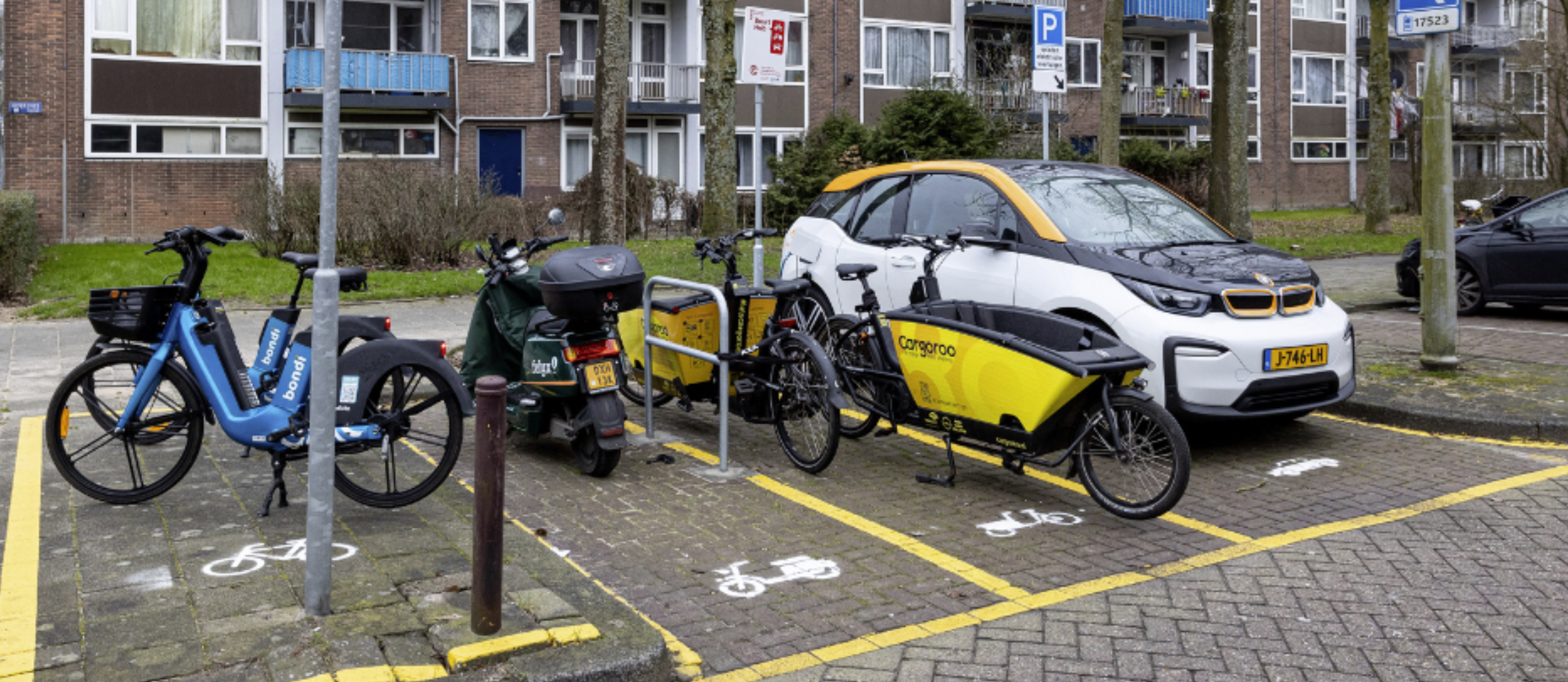City of Amsterdam (NL)
The city of Amsterdam aims to become a completely emission-free city by 2030, with strict restrictions already in place by 2025 for logistics transport. Additionally, Amsterdam seeks to reduce the number of parked cars and is investing in alternative and active mobility options. Recently, the city adopted a vision for hubs (Hubsvisie Amsterdam), which paves the way for research, pilot programs, and scaling up of neighborhood hubs. It also facilitates learning about how to effectively use and organize hubs.
In addition to the hub vision, Amsterdam has a shared mobility policy for bicycles, mopeds, and cars. The city is home to three local station-based bicycle providers, 100 cargo bikes, 700 floating mopeds, 1,200 station-based cars, and 1,300 free-floating cars. Moreover, Amsterdam is the lead partner in the eHUBS project and has plans to pilot shared mobility in underground car and bike parking garages.
Amsterdam's focus will be on the upscaling of neighborhood hubs with the aim of creating a citywide and regional network of hubs. The city has a specific interest in areas that are very busy, have high demand for space, and thus require more regulation to accommodate shared mobility. Additionally, Amsterdam is interested in areas not yet served by shared mobility in order to reach new target groups and make shared mobility accessible to everyone.
Apart from upscaling, the city will focus on data infrastructure and standardization efforts necessary for effective monitoring at both tactical and strategic levels. On a digital level, Amsterdam aims to achieve a level 4 MaaS (Mobility as a Service) integration. In addition, the city is eager to learn from other partners in the project about different thematic areas, strategies, and pilot programs.
